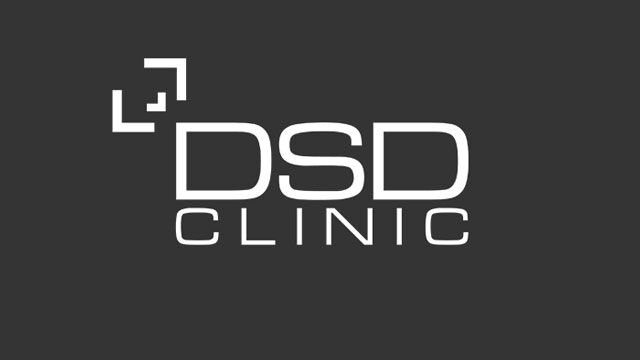
Uncertainty can lead to stress, and for many the side effect is clenching our jaws with potential for toothache. What are the signs?
Wherever you are in the world, it’s likely that COVID-19 has thrust us into staying at home. In New Zealand, our Prime Minister affectionately called this “staying in our bubble”. While it’s novel and some might be enjoying some leisure or family time during lockdown, others will be feeling the stress associated with uncertainty, income or business pressures or lack of routine. Maybe being at home with family is creating stress too, or we miss that sense of relevance and contribution in going to work. Lockdown might not be the relaxing time many thought they might have.
Mystery Toothache
After the devastating Christchurch earthquake in 2011, Dr Andrea Shepperson chatted with dentists during one of her lectures in Christchurch, New Zealand. Many dentists reported an increased in patients with facial pain. It was often associated with toothache. However, on examination, there didn’t seem to be anything wrong with the tooth itself.
While toothache is very real, due to decay, infection or fracture, this pain was referred, and mimicked toothache.
If you have a toothache that is related to decay, infection, or fracture…. you need treatment. Don’t delay and contact us on 09-9192660 or email us.
Our biggest jaw muscle is the masseter muscle, shown in red in Figure 1.

It helps to close the jaw and is a key chewing muscle, able to exert a lot of power when contracted or clenched. In the same way that we define and enlarge other muscles with training and weights, we can develop this muscle with over-exercise.
Stress can be a powerful subconscious trigger for clenching teeth, and many patients are unaware that their state of mind is contributing to the habit. When repeated tooth squeezing occurs the muscle is overworked and gets much bigger.
Dentists will meet a patient and know straight away if they are habitual clencher – the muscle is very obvious from the front and can often be larger on one side only.

Enlarged Clenching Muscles.
The Role of Trigger Points & Referred Pain
Overuse can lead to an accumulation of inflammation and neurotransmitters at a point in the muscle – the trigger point.
Dr Janet Travell (December 17, 1901 – August 1, 1997) was an American physician and medical researcher who pioneered techniques for Myofascial pain and dry needling. Best known as President John F. Kennedy’s personal physician, she researched of the concept of trigger points as a cause of musculoskeletal referred pain. She published a book with colleagues David and Lois Simons mapping the pathways between the head and neck muscles and the jaws and teeth.
When we look at Dr Janet Travell’s map of trigger points X and referral sites of pain in RED, we can start to see that clenching and over-use of the Masseter muscles could reflect as pain in teeth or jaws.

Habits That Contribute
- Chewing gum
- Nail biting
- Posture and related neck or shoulder pain
Simple Help For Clenching Pain
If you feel as though you have started clenching your jaw or teeth more than usual, or are experiencing symptoms such as headaches, neck aches or jaw/tooth pain, here are some self-care tips to help:
- Self-Massage. Massaging your masseter muscles, head and neck is a great starting point. To massage the masseter externally, massage around the site, kneading or pushing into the muscle. We really like this site, which gives great tips on how to massage these areas yourself.
- Professional Massage. Professional sports or therapeutic massage is excellent for clenching pain. We often refer our patients to a specialist physiotherapist and recommend About Faces. If you have someone at home who is kind enough to give you a face, head and neck massage this will help ease the tension too.
- Stress Management. Taking time out for ourselves, exercising, breathing and meditation are all ways you can help better manage stress.
- Voltaren Emugel. An over-the-counter gel you can massage into your Masseter muscle and trigger points to relieve pain and inflammation. Please follow instructions on packaging and DO NOT USE IF YOU HAVE A VOLTAREN, CATAFLAM OR DICLOFENAC ALLERGY.
- Non-Steroida Antil-Inflammatory Pain Relief. Products that you buy Over-The-Counter for a headache can also be used.
- Heat Packs: Application of gentle heat, in a wheat pack can help to ease muscle tension and improve circulation.
If these simple remedies are not helping, you will need further investigation starting with a thorough dental examination. We might suggest physiotherapy, acupuncture or make you a bite splint to mitigate some of the forces and power exerted by the muscles. Botox into the masseter is also helpful for patients who suffer chronic pain that can’t be alleviated with other techniques. Sometimes a combination of aesthetic concerns and symptoms will direct patients to use botulinum toxin, which reduces the muscle contraction and allows the masseter muscle to reduce in size.
ALL EMERGENCY PATIENTS SHOULD CALL 09-9192660
Please remember that the best person to diagnose your pain is your dentist. We are here to help. If you are a patient of Lumino City Dental at Quay Park, please contact Dr Andrea Shepperson, Lead Dentist, for a Virtual Consultation and she will determine if we can help over the phone or you need to visit a Lumino emergency practice.









